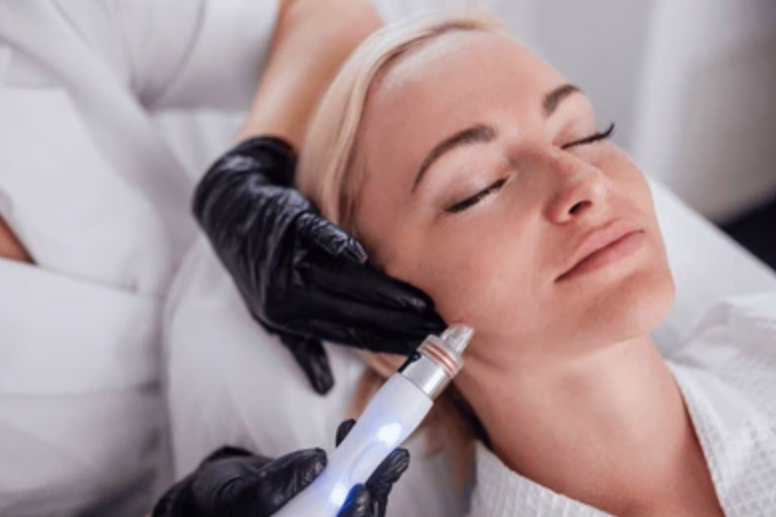Acne scars can affect skin texture and appearance long after the blemishes themselves have cleared. Depending on the severity and type of scarring, a range of non-invasive, minimally invasive, and professional options exist to address these concerns. Here is more information on a few effective methods to improve acne scars and enhance skin health through surgical and cosmetic dermatology:
Exploring Topical Treatments
Acne scars can be treated through surgical and cosmetic dermatology. Topical treatments are excellent first-line methods for managing minor acne scars, especially discoloration and surface irregularities. These products often include active ingredients that target specific issues, including hyperpigmentation and uneven texture.
Commonly used products in this category include retinoids, alpha hydroxy acids (AHAs), and beta hydroxy acids (BHAs). Retinoids encourage skin cell turnover, which smooths uneven texture over time. AHAs and BHAs exfoliate the skin and promote a more even tone by removing the outer layers of dead skin cells. Niacinamide and vitamin C are also popular ingredients that help reduce redness and brighten skin discoloration caused by acne scars.
Utilizing Minimally Invasive Procedures
For individuals with more prominent acne scars, minimally invasive procedures can improve the skin’s surface. These options often bridge the gap between topical treatments and more intensive dermatological interventions. Microneedling, sometimes referred to as collagen induction therapy, involves using fine needles to create tiny micro-injuries in the skin. This process stimulates collagen and elastin production, which can help improve the appearance of rolling scars and even out textured skin.
Chemical peels are another alternative, with each peel targeting a specific layer of the skin, depending on its depth. Superficial peels rejuvenate the skin’s outer layers, while medium-depth or deep chemical peels penetrate further to address more severe forms of acne scars. For those seeking a less invasive discoloration treatment, laser therapies such as fractional laser resurfacing or pulsed-dye lasers are effective. These treatments target hyperpigmented areas associated with post-inflammatory marks and stimulate collagen production.
Understanding Professional Treatments
Deep scars, such as icepick or boxcar scars, require professional dermatological interventions. These advanced treatments typically deliver the most significant improvements and are tailored to individual skin needs. Dermal filler injections can temporarily fill in depressed scars, creating a smoother surface. These are effective for boxcar and rolling scars and can last for up to a year before requiring reapplication.
Ablative or non-ablative laser resurfacing treatments remove damaged skin layers and promote healing for more uniform skin texture. Ablative lasers are particularly effective for deeper scars; non-ablative alternatives work well for those seeking less downtime. For scars that are very narrow or deep, surgical methods like punch excision may deliver optimal results. This involves removing the scar and closing the wound, which can significantly improve the skin’s overall appearance. Dermatologists may also combine treatments, such as surgery and laser therapy, to achieve comprehensive results.
Learn About Surgical and Cosmetic Dermatology
Acne scars vary in type and severity, requiring different approaches for treatment. Topical treatments can minimize discoloration and minor texture concerns, while minimally invasive options like microneedling or chemical peels yield more noticeable results for moderate scars. Professional dermatological procedures, including laser resurfacing and surgical techniques, effectively address deep or stubborn scars. Selecting the most appropriate method depends on factors such as scar type, severity, and individual skin needs. If professional guidance is sought, dermatologists can craft a personalized treatment plan to achieve optimal outcomes.
- Zirconia Cap Price: Estimated Cost & Its Long-Term Benefits
- FREHF – The Revolutionary Future Of Human-Centered Technology!
- Adsy.Pw/Hb3 – Boost Your SEO And Drive More Traffic!
- Fitness Based Vacations By Timeshealthmage.com!
- TimesHealthMag Tips For Improving Sleep Quality – Expert Advice For Better Rest!


Leave a Reply